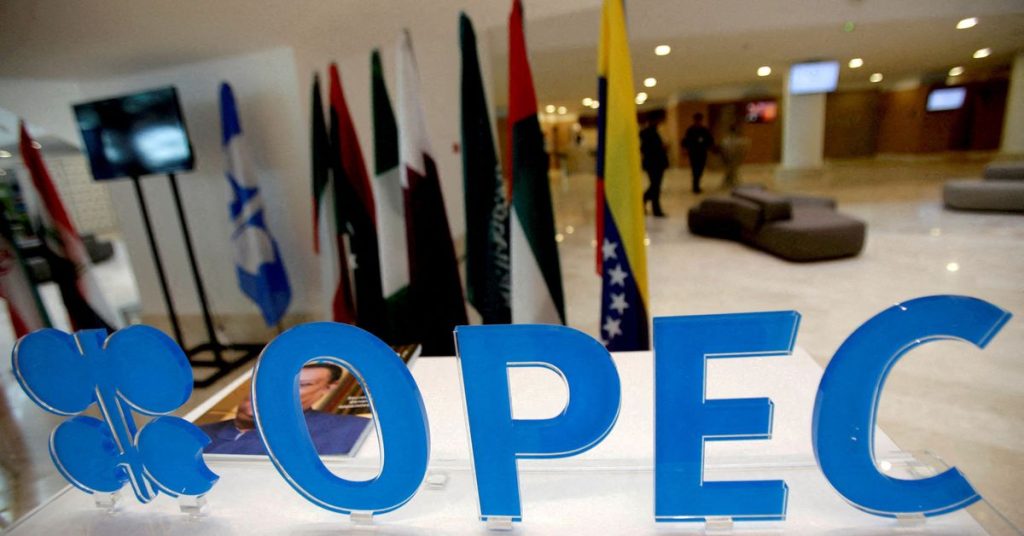A picture of the OPEC logo ahead of an informal meeting between members of the Organization of the Petroleum Exporting Countries (OPEC) in Algiers, Algeria, September 28, 2016. REUTERS/Ramzi Boudina
Register now to get free unlimited access to Reuters.com
BRUSSELS/LONDON (Reuters) – OPEC told the European Union on Monday that current and future sanctions on Russia could create one of the worst oil supply shocks ever and that it would be impossible to offset those volumes, and indicated it would not pump. more.
European Union officials held talks in Vienna with representatives of the Organization of the Petroleum Exporting Countries (OPEC), amid calls for the group to increase production and as the European Union considers possible sanctions on Russian oil.
OPEC Secretary-General Muhammad Barkindo said, according to a copy of his speech seen by Reuters.
Register now to get free unlimited access to Reuters.com
“Given the current demand outlook, it would be nearly impossible to offset a volume loss of this magnitude.”
A European Commission official told Reuters that the European Union repeated its call at the meeting for oil-producing countries to discuss whether they could increase shipments to help cool high oil prices.
The official said EU representatives also indicated that OPEC had a responsibility to ensure oil markets were balanced.
OPEC has resisted calls from the United States and the International Energy Agency to pump more crude to cool prices that hit a 14-year peak last month after Washington and Brussels imposed sanctions on Moscow in the wake of Russia’s invasion of Ukraine.
In a meeting with OPEC, the European Union said that OPEC may provide more production from its spare capacity, according to an OPEC document seen by Reuters.
However, Barkindo said the current highly volatile market was the result of “non-fundamental factors” outside of OPEC’s control, an indication that the group would not pump more.
OPEC+, which consists of OPEC and other producers including Russia, will raise production by about 432,000 barrels per day in May, as part of the gradual unwinding of production cuts made during the worst case of the Covid-19 pandemic.
The EU-OPEC meeting on Monday afternoon was the latest in a dialogue that began between the two sides in 2005.
Russian oil has been excluded from EU sanctions so far. But after the 27-nation bloc agreed last week to penalize Russian coal – the first to target energy supplies – some top EU officials said oil could be next.
The European Commission is preparing proposals for an oil embargo on Russia, the foreign ministers of Ireland, Lithuania and the Netherlands said on Monday at a meeting of European Union foreign ministers in Luxembourg, although there was no agreement to ban Russian crude. Read more
Australia, Canada and the United States, which are less dependent on Russian supplies than Europe, have already banned purchases of Russian oil.
EU countries are divided over whether to follow suit, given their high dependency and potential for action to raise Europe’s already high energy prices.
The European Union expects its oil use to fall 30% by 2030, from 2015 levels, under its planned policies to combat climate change – although the short-term ban would lead to a rush to replace Russian oil with alternative supplies.
(Reporting by Kate Abnett) Editing by Mike Harrison and Susan Fenton
Our criteria: Thomson Reuters Trust Principles.

“Twitter practitioner. Beer evangelist. Freelance gamer. Introvert. Bacon aficionado. Webaholic.”











More Stories
Asian stocks slide as Fed hike fears push Wall Street into a bear market
Dow Jones plunges 900 points, S&P enters bear market as inflation fears escalate
Bitcoin Price: Percentage Trading Paused, Binance Pausing Some Withdrawals